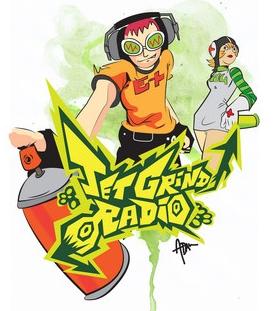 PLATFORM: XBox Live Arcade (reviewed), Playstation Network, Playstation Vita (10/16), iOS/Android (Q3 2012)
PLATFORM: XBox Live Arcade (reviewed), Playstation Network, Playstation Vita (10/16), iOS/Android (Q3 2012)
PRICE: $9.99/800 MS pts
ESRB RATING: T
DEVELOPER: Smilebit/Blit Software
PUBLISHER: Sega
We few. We happy few. We band of Dreamcast owners.
The Dreamcast wasn’t the first system killed by, shall we say, unnatural causes, but it is the one gamers rightfully mourn, along with the dozens of fantastic, innovative games still buried alive in the wake of PS2-borne catastrophe. The last few years have been good to us in terms of raising many of those titles from the dead, but Jet Grind/Set Radio, given new life, is what the world has really needed.
Well, we got it. In glorious high definition. For better and worse.
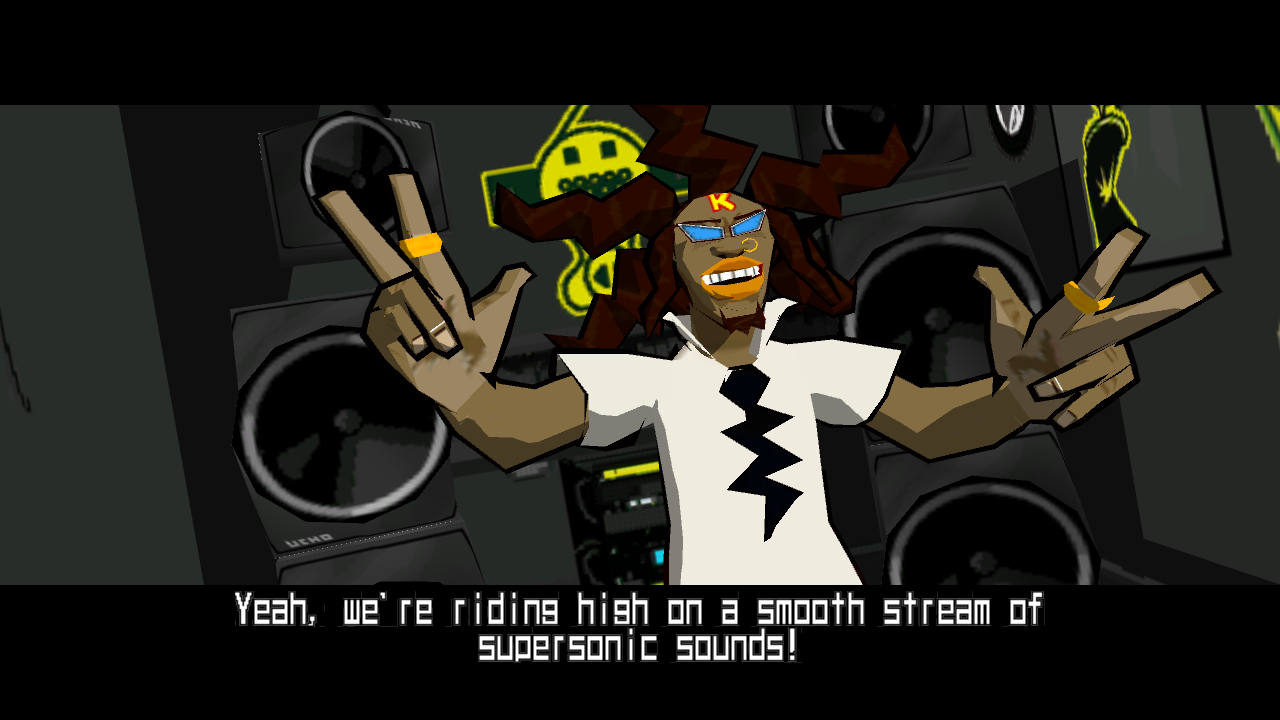
THE PITCH
A rollerblading, music-loving, graffiti-spraying street gang finds themselves defending their turf and their art from rival gangs, the local police, and a billionaire tycoon set on total cultural control of the city.
THE PLAY
For the uninitiated, Jet Set Radio will either seem like a gimped Tony Hawk, or a Mark Ecko ad on X. The truth is right in between, and far beyond both. The skating is simple to learn, yet getting around and racking up high strings of points takes practice, patience, and a keen eye for the right rail to grind. And it’s a skill you need to pick up for later, when the game stops sending just hordes of inept cops after you to stop you from tagging up the city, and starts sending in giallo killers and flamethrower units. You heard me. Then at the same time, you need to find the right time and place to spray your gang’s tag by following the onscreen directions, telling you the correct swoops of the left stick to use to draw for your character of choice. Put together, it’s a weird, quirky dance of rhythm and strategy, and yet, once the game gets its hooks in, you’ll have that moment of horror when you realize you’ve been staring at a park fence in real life, wondering where the grindpoint is, and I assure you, that point is inevitable if you spend more than an hour with the game. After the 5-6 hours it takes to actually beat it, that sensation only intensifies.
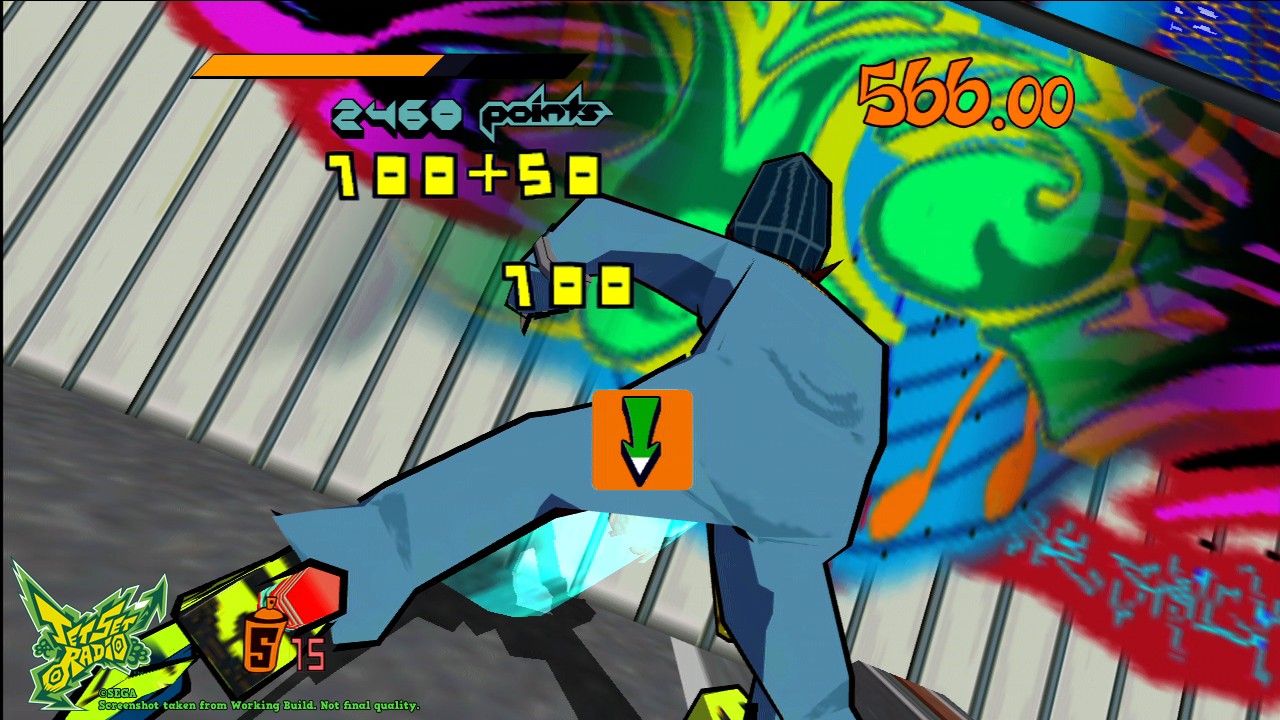
While I’ve actually got rather high hopes for the touchscreen-enabled Vita port, let’s face it, there was always only going to be one option for which controller the veterans would play this with, and that’s the 360s. Aside from the second stick, the second you hear Professor K bellow the title, it’s like 10 years was a trip to the bathroom. The game’s basic controls are still just as fluid as ever.
The downside is that the game’s major flaws made their way across the void of time, too. Specifically, even with the godsend that is the camera control in the right stick, the game’s perspective issues are still legion and annoying, and of all the tweaks the game could have fixed (especially when it’s one of a small, but vital list of things the XBox sequel did better), being able to hold down the graffiti button to spray tags that only need one can instead of the constant jitter of repeated camera centering should’ve been top of the list. Part of being a port is that you do get the chance to fix shit that didn’t work (as Blit themselves managed to do on that beautiful Sonic CD re-release). This was a swing and a miss in that regard, and the game does suffer for it.
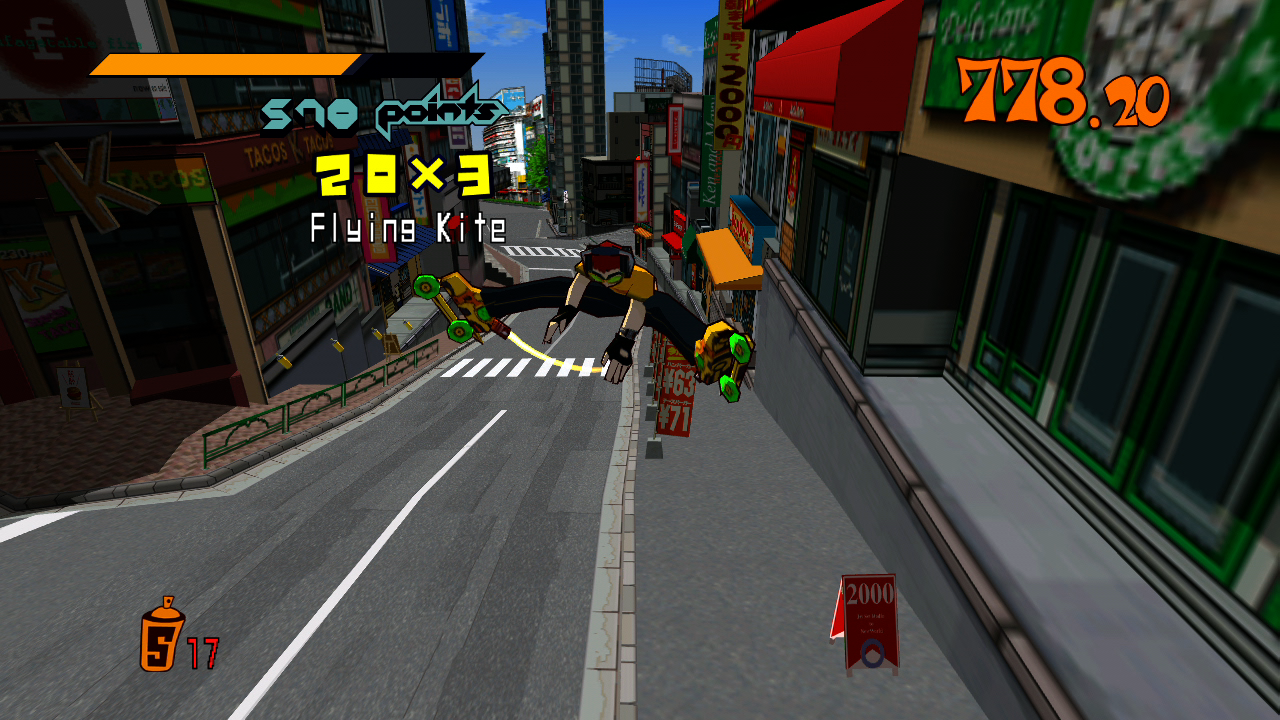
THE PRESENTATION
And yet, the second you get to the hideout menu, and Humming The Bassline starts up, every aging problem the game’s got melts away. Point blank: Jet Set Radio looks and sounds amazing. It’s vibrant, you still very much get the playing-a-cartoon goosebumps the game gave back on Dreamcast, and the soundtrack is still the work of the most brilliant, diverse collection of lunatics Japan has to offer.
The sole issue is that, with a modern eye, the jaggedness of the character models does stick out, but when it’s in service of a look that many have tried, all have failed to emulate, it’s still only better than a great many most modern games, instead of most of them.
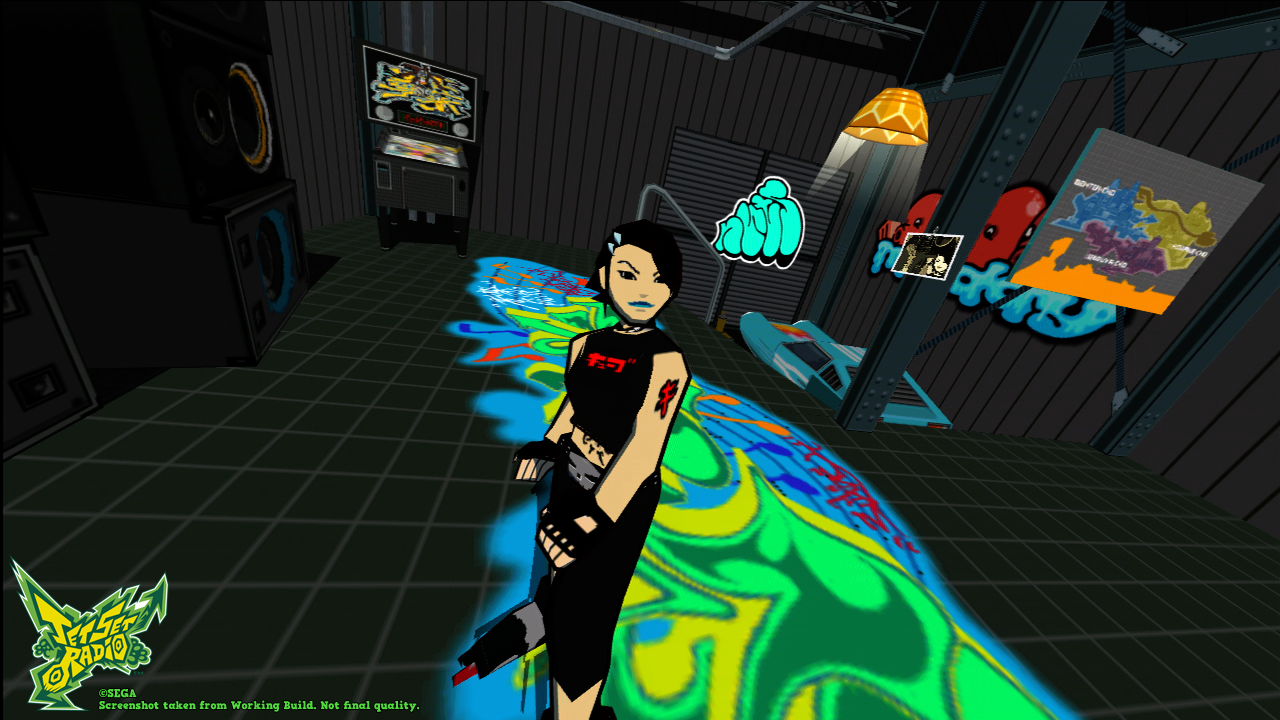
THE REPLAY
This is one of those games that was made for leaderboards, especially since one of the major achievements involves getting a Jet score rating on all stages, which will keep even seasoned skaters busy for a while. There’s also still characters to unlock (including my favorite, Potts, the rollerblading clubhouse dog), a ridiculous amount of of graffiti to find, most of them requiring some of the most fun stunts in the game to obtain, a short, but awesome 15 minute documentary about the making of the game, featuring interviews with members of the now-defunct Smilebit team, and a choice selection of bonus music tracks from Jet Set Radio Future to unlock (Pro Tip: Play the Tutorial. There’s an achievement/trophy for beating it, another for doing over 100 tricks–easy when you figure out how to ride the rails in a circle around the entire stage–AND you unlock Concept of Love). It’s not necessarily digital crack levels of addiction, but it’ll be satisfying as hell on the comeback.
THE VERDICT
I want to slip “They don’t make ’em like this anymore” into this review somewhere, except they never did prior, and aside from Jet Set Radio Future, they haven’t since. I can count on one hand the number of truly innovative, unique game ideas have come down the pipe in the years since JSR, and none of them represent a world or a set of game mechanics I’ve felt such a compulsion to keep playing over and over as I have since I got the code for this download. Even with its problems, $10 buys a lot of happiness and memories for anyone awesome enough to know how great the Dreamcast was. It’ll buy a hell of a lot more regrets when newer gamers figure out what those people were blathering on about for 12 years. This is an instant buy.
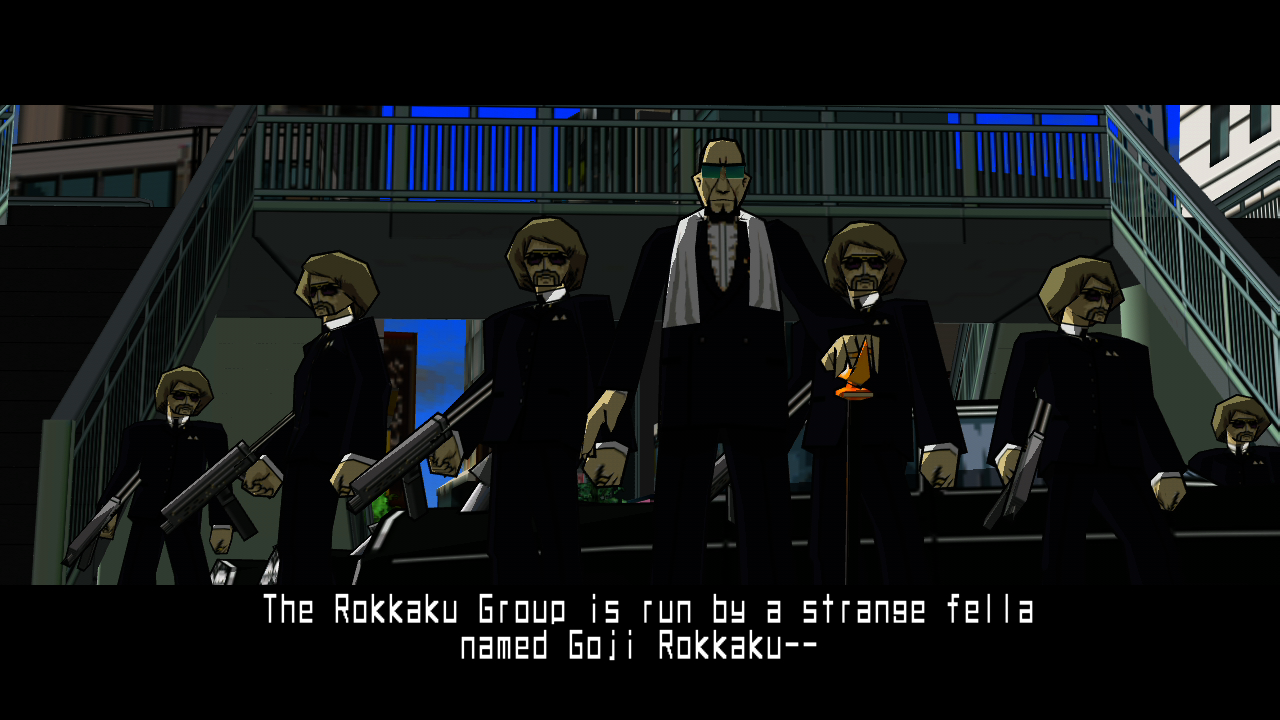




out of 5
